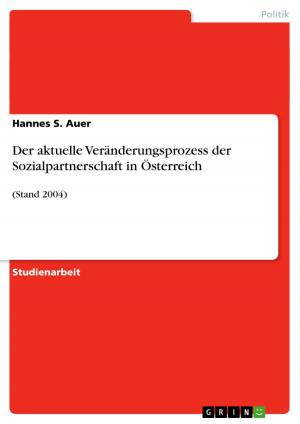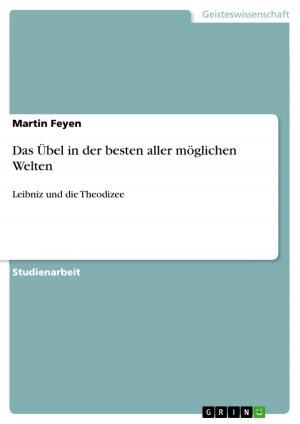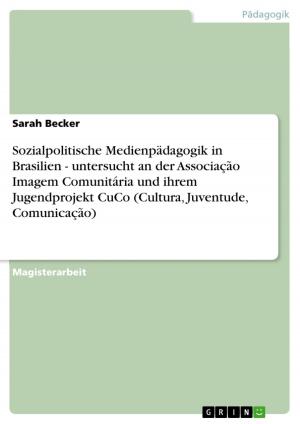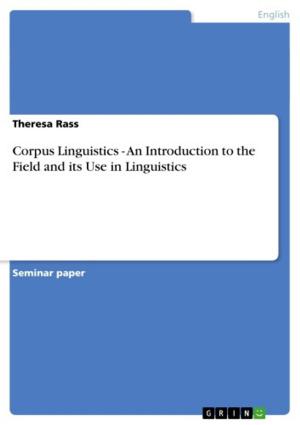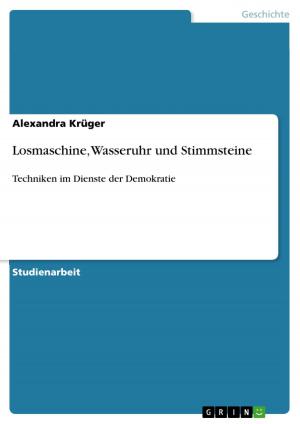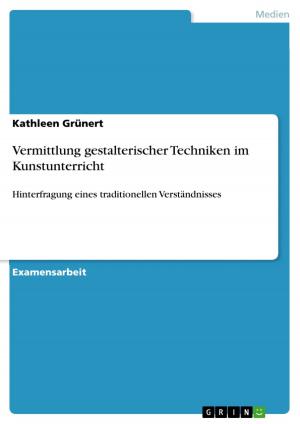Pygmalion's Metamorphosis and Galatea's Revenge: Feminist Revisions of Ovid's Pygmalion Myth in British and American Literature since the 20th Century
Fiction & Literature, Literary Theory & Criticism, British| Author: | Stefanie Eck | ISBN: | 9783656364306 |
| Publisher: | GRIN Verlag | Publication: | February 1, 2013 |
| Imprint: | GRIN Verlag | Language: | English |
| Author: | Stefanie Eck |
| ISBN: | 9783656364306 |
| Publisher: | GRIN Verlag |
| Publication: | February 1, 2013 |
| Imprint: | GRIN Verlag |
| Language: | English |
Bachelor Thesis from the year 2010 in the subject English Language and Literature Studies - Literature, grade: 2,5, University of Regensburg, language: English, abstract: The myth of Pygmalion as told by Ovid in his Metamorphoses contains, according to Geoffrey Miles, 'one of the most potent male fantasies' - that is the creation 'of a perfectly beautiful woman designed to the lover's specifications and utterly devoted to her creator'. The fact that Pygmalion's literally man-made lover comes to life at the end of the story probably was the reason for artists' fascination with the myth. Ever since antiquity, patriarchal literature produced countless renarrations of the story about Pygmalion's love for his statue, and most of them were especially intrigued with the erotic potential of Ovid's tale. Yet this leads to the question how the awakening of feminist thought since the early 20th century influenced the myth's reception. More precisely, how did feminist versions of the tale alter its content and the relationship of its protagonists? This question forms the basis of this thesis paper which will examine, by means of several Pygmalion versions of the 20th and 21st centuries, the myth's development from a patriarchal towards a feminist tale. Texts by authors like Angela Carter, Neil LaBute, G.B. Shaw and others will be analysed.
Bachelor Thesis from the year 2010 in the subject English Language and Literature Studies - Literature, grade: 2,5, University of Regensburg, language: English, abstract: The myth of Pygmalion as told by Ovid in his Metamorphoses contains, according to Geoffrey Miles, 'one of the most potent male fantasies' - that is the creation 'of a perfectly beautiful woman designed to the lover's specifications and utterly devoted to her creator'. The fact that Pygmalion's literally man-made lover comes to life at the end of the story probably was the reason for artists' fascination with the myth. Ever since antiquity, patriarchal literature produced countless renarrations of the story about Pygmalion's love for his statue, and most of them were especially intrigued with the erotic potential of Ovid's tale. Yet this leads to the question how the awakening of feminist thought since the early 20th century influenced the myth's reception. More precisely, how did feminist versions of the tale alter its content and the relationship of its protagonists? This question forms the basis of this thesis paper which will examine, by means of several Pygmalion versions of the 20th and 21st centuries, the myth's development from a patriarchal towards a feminist tale. Texts by authors like Angela Carter, Neil LaBute, G.B. Shaw and others will be analysed.


